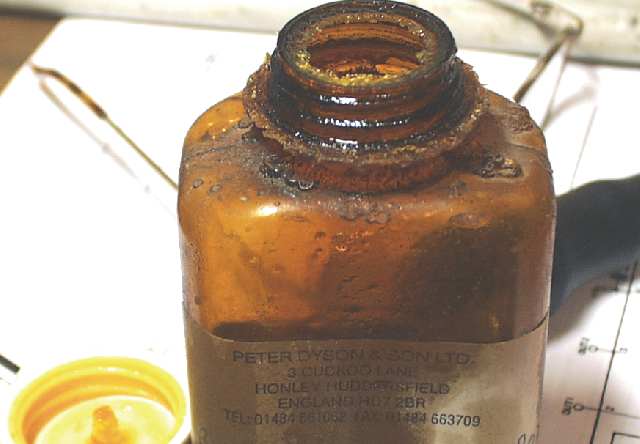Linseed oil is from the seed of the Flax plant. The very same grasslike plant gives us the fabirc "muslin", A nice, fine, soft, and supple material used as clothing for milleinia. Flax Tow; is the remaining chards of the flax plant that is too course to use as fabric,it's mild abrasive qualties as well as it's ability to absorb moisture has made it a favorite for ml shooters to clean and swab their firearms for centuries. A good wad or nest of tow makes a dandy fire starter also when used with char cloth/rope and a flint and steel.
Raw linseed oil is a great wood preservitve, a little dab spreads along ways! But it can take weeks to dry/cure. This stuff was used once maybe twice a year,to protect and preserve gun stocks.
Boiled Linseed oil isn't boiled. It's simply raw oil with drying agents added. There is no "standard" drying agent used to make "boiled" linseed oil, each manufacurer can use some thing different and many such substances have become a "patened" product; Thompsen water seal,Watco oil,Minnwax, just to name a few. The old standard was 2 parts linseed oil and one part turpintine. The stock finishing products we get sold today are Tru-coat,True-oil,Permilyn,,ect...
Linseed oil is still the best,but it takes a LONG time,,and requires additional loving care for years to come.

